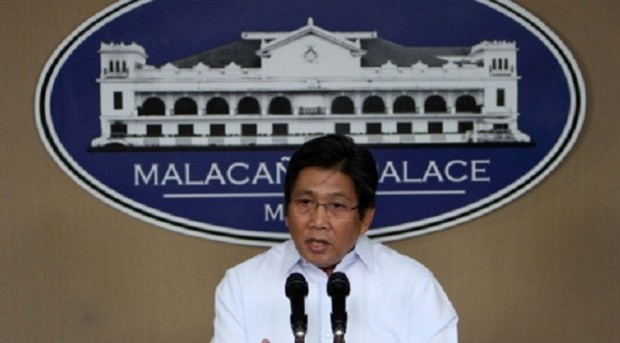MALACAÑANG has urged senators to think about the “implications” of their decision to slash P8 billion from the 2016 funding of the government’s conditional cash transfer (CCT) program, from P64 billion to P56 billion.
Presidential Communications Secretary Herminio Coloma on Tuesday said they “trust that our legislators will consider the implications of their decision on the CCT beneficiaries,” whom he called the “most important stakeholders in our efforts to achieve inclusive growth.”
In a statement, Coloma said they would “await the outcome of the deliberations of the bicameral conference committee on the matter.”
The huge cut in the CCT budget would result in the delisting of about 500,000 family beneficiaries of the pro-poor program, which provides monthly cash aid to what the Department of Social Welfare and Development (DSWD) calls the “poorest of the poor.”
The DSWD is implementing the program, also called the Pantawid Pamilyang Pilipino Program, which aims to keep indigent children in school and require their parents to attend family planning sessions.
Senators Juan Ponce Enrile, Vicente Sotto III and Loren Legarda reportedly cut the CCT budget and diverted the funds to the Philippine Air Force, to which they set aside an additional P10 billion.
House members, led by appropriations committee chair Rep. Isidro Ungab of Davao City, are trying to restore the P8-billion CCT budget reduction, reports also said.
Before Congress goes on its month-long Christmas break, the bicameral conference panel is expected to wrap up deliberations on the final version of the 2016 national budget bill.
Social Welfare Secretary Corazon “Dinky” Soliman has repeatedly defended the CCT program, stressing it was an “investment in children’s future.”
“It is an investment in human capital for the children of the poor, to have a fighting chance to be part of inclusive growth,” she said.
She explained that the program, while contributing to the government’s poverty reduction initiatives, was also providing beneficiaries an “exit strategy to prepare them to start their own sources of livelihood after the program.”
